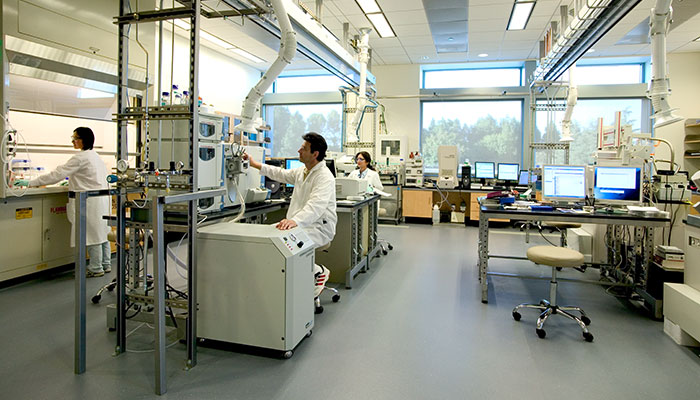COVID-19 Operational Planning and Preparations for PIs
Last Updated 4/1/2020
Individual labs and research facilities are best positioned to create a continuity plan that will meet their unique needs. Principal Investigators and Research Managers should develop plans according to guidance given by campus leadership. The following are recommendations to consider in developing your plan.
The following assumptions are based on a scenario with widespread COVID-19 transmission:
- A significant percentage of your laboratory workforce may be out sick or unable to come to work.
- Essential research infrastructure, such as power and telecommunications, will be maintained.
- The Teaching and Research Animal Care Services will maintain their essential research support functions, although some lower-priority services may need to be curtailed (e.g., less frequent waste pick-up).
- Orders for critical supplies may be delayed. Information from the Procurement & Contracting Services can be found here.
- Processing of visas by the federal government may be delayed, resulting in delayed appointments.
- Core facilities and other fee-for-service resources may not be available
Planning
- Ensure that those involved in research projects have access to information they need to carry out work remotely (e.g., access to literature, existing datasets and research-related files, and meeting software, such as Zoom).
- Test and update remote work technologies such as VPN and Zoom conferencing.
- The UC Office of the President has stated that under no circumstances are researchers to take materials other than laptops, data storage devices, etc., offsite (e.g., to their homes).
- Identify procedures and processes that require regular personnel attention (e.g., cell culture maintenance, animal studies).
- Assess and prioritize critical laboratory activities.
- Identify any research experiments that can be ramped down, curtailed or delayed.
- Identify personnel able to safely perform essential activities.
- Ensure that you have access to emergency contact information for your critical staff, including cell phone numbers.
- Cross-train research staff to fill in for others who may be out sick or unable to come to work.
- Ensure staff have the appropriate training.
- Ensure you are documenting critical step-by-step instructions in your Standard Operating Procedures.
- Coordinate with colleagues who have similar research activities to identify ways to ensure coverage of critical activities.
- Review contingency plans and emergency procedures with researchers and staff.
- Maintain a sufficient inventory of critical supplies that may be impacted by global shipping delays.
- Investigators who intend to ship research materials overseas should ensure that service is available and that packing materials (ice packs, etc.) are sufficient in case the package is delayed.
- Communicate significant planned absences and/or lab closures to key administrative units.
- Depending upon the nature of your research, consider prioritizing work that can only be carried out in your research facility, and put off work amenable to remote support, such as data analysis. Stockpiling results and data now that could be analyzed remotely in the future is a potential option that might create future flexibility.
Resources
- Guidelines for Research Biospecimens During the COVID-19 Pandemic (added 3/24/20)
- View a sample laboratory ramp-down checklist
- Information for researchers who need to cryopreserve their cell lines during COVID-19. (added 3/23/20)
Other safety considerations
- Ensure that individuals performing critical tasks have been adequately trained and understand whom to contact with technical or safety questions.
- Avoid performing high-risk procedures alone. When working alone is necessary, exercise extreme caution.
- Ensure that research team members notify colleagues of their schedule when working alone for an extended period of time.
- Ensure that high-risk materials (radioactive, biohazards, chemicals) are properly secured.
Latest News & Events







